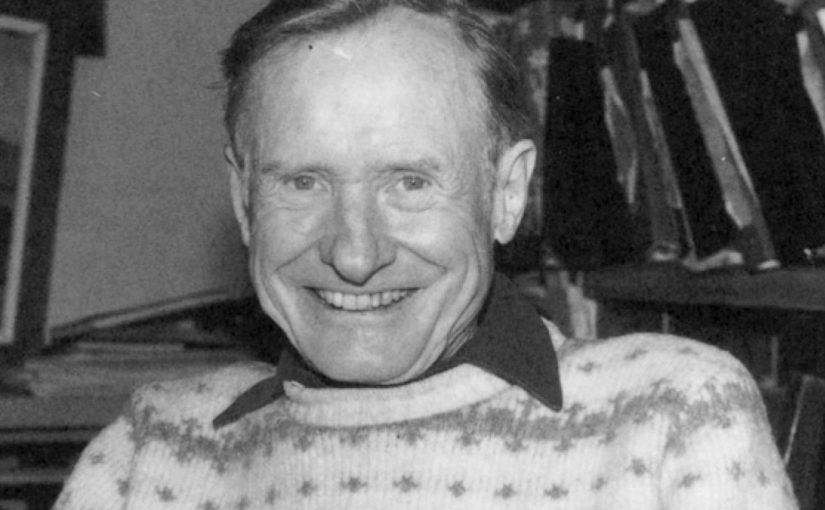(en français ci-dessous)
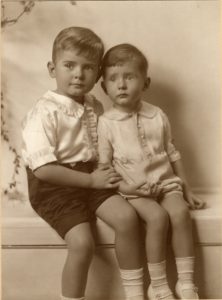
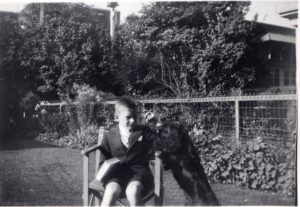
Donald Duke Patterson was born on October 13, 1927, in Montreal to Gertrude MacFarlane and James Duke Patterson, two years after his brother Alan. Donald excelled at school, first at Selwyn House and then at Westmount High. In 1944, he placed first in the province in the Quebec high school final exams.
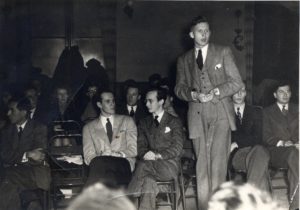
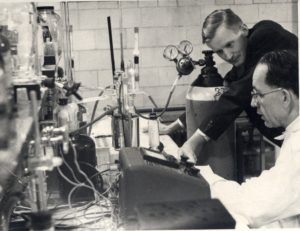
He went on to study physics at McGill University, and then chemistry for his PhD at the University of Bristol, England. He became a physical chemistry professor at Université de Montréal in 1956, and ten years later at McGill, where he remained until his retirement in 1993.
In 1993, a special issue of the Journal of Solution Chemistry was published to honour his work. The Journal explains that Professor Patterson contributed to the polymer and small molecule thermodynamics through innovative and creative research, leading to the discovery of the importance of order and non-randomness in solutions of small molecules near their upper critical solution temperatures. He was highly respected by his students at McGill, happily teaching first-year students as well as developing long-lasting relationships with masters and PhD students from around the world. As one former PhD student recounts, Donald was like a second father to him: teaching him science, but also how to be a good person.
Although a scientist at heart, Donald was always interested in politics and social issues. He joined the left-wing CCF (pre-NDP) party in his youth and canvassed door-to-door in east-end Montreal. Throughout his life, he had a deep commitment to social justice, the environment and peace and continued to join campaigns on issues he cared about well into his later years.
In 1957, Donald was a tall, good-looking university professor of 30. There were hardly any female graduate students at school, when 24-year-old Geneviève Delmas arrived from France to do her masters. Donald was her thesis director. They fell in love. Today, such a relationship could have raised issues, but this was another time.
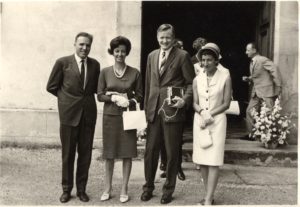
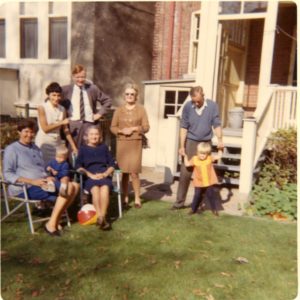
Genevieve and Donald were married in Strasbourg, France in 1964.
They had three daughters: Juliette in 1967, 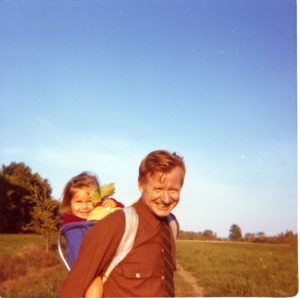
Beatrice in 1969 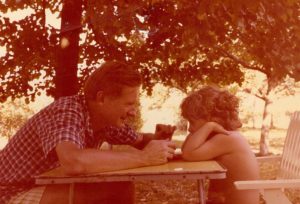
and Elisabeth in 1973. 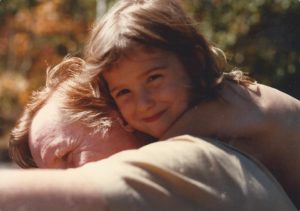
Donald was a very loving and supportive father. His commitment to Beatrice, who was severely mentally disabled, was particularly strong. He spent countless hours doing daily exercises with her, returning from work at lunchtime to teach her how to walk and eat by herself.
Beatrice’s sudden death in 1980 was life shattering. Like many scientists, Donald called himself an atheist. To reconcile science with the profound pain of losing his daughter, Donald turned to the New Physics. He found solace in quantum mechanics’ belief in a universal mind existing as part of our unique physical universe, a natural as opposed to a supernatural God, whereby consciousness could continue after death. He embarked on a life-long reflection on the meaning of life, God and the afterlife from the viewpoint of quantum physicists. He also became an active member of the Unitarian Church of Montreal, which offered a welcoming community of diverse beliefs in favour of social justice.
Donald loved to travel. During his PhD in Bristol in the early fifties, he crisscrossed post-war France and Spain on a motorbike. He also hitchhiked across the United States and was briefly detained at the border for jokingly answering “yes” to the question: “Are you a communist?”
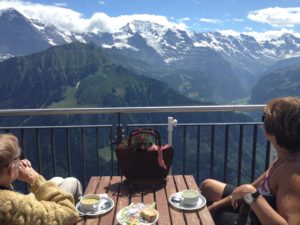
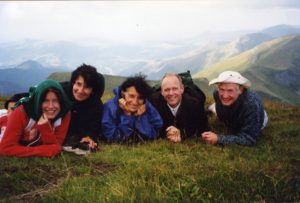
Donald had a particular passion for hiking. He regularly hiked in the Adirondacks and in the Swiss Alps, as well as Nepal, Peru and the Galapagos. Geneviève and Donald loved spending summers in the volcanic region of Auvergne with Geneviève’s sisters, nephews and nieces, who were very fond of this cultured anglo who treated children with the same respect as grown-ups. Genevieve and Donald were also able to take advantage of scientific conferences to visit chemistry colleagues around the world including most of Europe, as well as India, Mexico, Nepal, Turkey, Israel, Egypt and Tunisia.
Donald’s enthusiasm and curiosity were boundless. For his daughters, he was Wikipedia before the Internet. It was rare that he could not answer a question on geography, language, history, science or culture.
Donald became a fitness enthusiast and talented vegetarian cook after suffering a heart attack at 51. Later in life, he suffered several strokes, but he loved life and was strikingly resilient. After having lost his language abilities after one such stroke, he worked very hard with Genevieve’s help to relearn how to speak, read and write. On his 40th wedding anniversary in 2004, he courageously read out loud before family and friends a speech co-written with Genevieve.
He and Genevieve welcomed students, family and friends to live in their house for short – and sometimes longer – periods of time, as well as poets, artists, refugees and the unemployed in need of a temporary place to stay. Despite his remarkable intelligence, he was humble, calm and patient, always ready to help.
Donald’s presence will be remain strong in the hearts of Geneviève, Juliette et Elisabeth, his sons-in-law Michel and Eloi, his two granddaughters Céleste and Zoé, as well as family, friends, former students, community members and many others which he touched in so many ways.
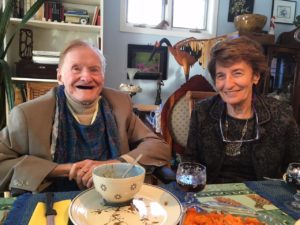
This is the last photo taken of Donald with Genevieve in Ottawa, the week before his death. Voici la dernière photo prise de Donald avec Genevieve, la semaine avant son décès, à Ottawa.
Donald Patterson est décédé le 15 décembre 2016 à Westmount à l’âge de 89 ans. Sa femme, Geneviève Delmas, et leurs deux filles, Juliette et Elisabeth, étaient à ses côtés pendant ses derniers jours. Ses deux petites-filles, Céleste et Zoé, ses gendres, Michel et Éloi, son neveu David et quelques amis ont pu aussi lui dire au revoir. Donald a rejoint sa fille Béatrice, décédée à dix ans, son frère, Alan, et ses parents, James Duke et Gertrude.
Donald a eu une vie bien remplie. Il a contribué à l’Université de Montréal et à McGill à une meilleure compréhension de la thermodynamique des solutions de petites molécules et de polymères. Beaucoup d’étudiants, qui sont maintenant un peu partout dans le monde, se rappellent avec plaisir son enseignement et son approche à la recherche. Son amour des voyages et de la nature l’a amené à marcher dans des sites impressionnants comme au pied de l’Everest. Donald prenait à coeur la défense des droits humains, de l’environnement et de la paix, prêt à marcher dans la rue s’il le fallait. Donald était un homme bienveillant, respectueux des autres et chaleureux, qui a touché beaucoup de vies.
